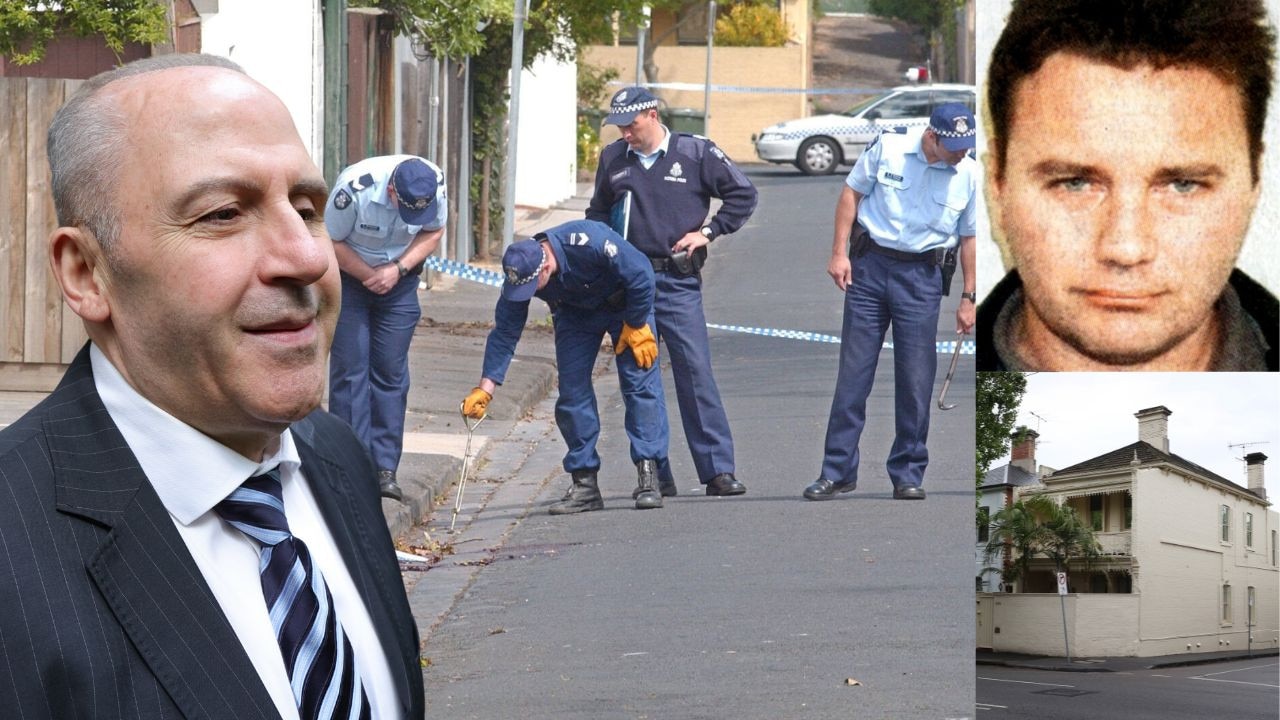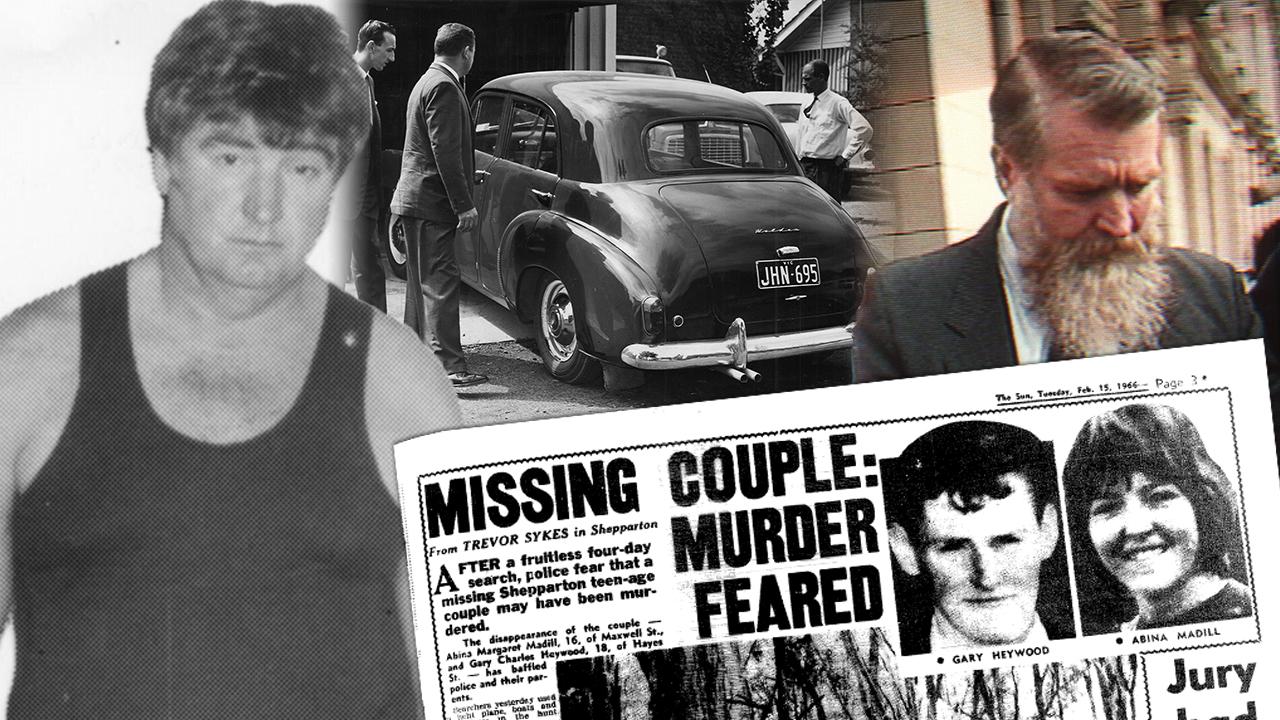How Rosie Batty channelled pain to become fierce violence victim’s advocate
A decade ago Rosie Batty saw her only child die in unspeakable circumstances, but through her unthinkable loss she has continued to find a way to help others.
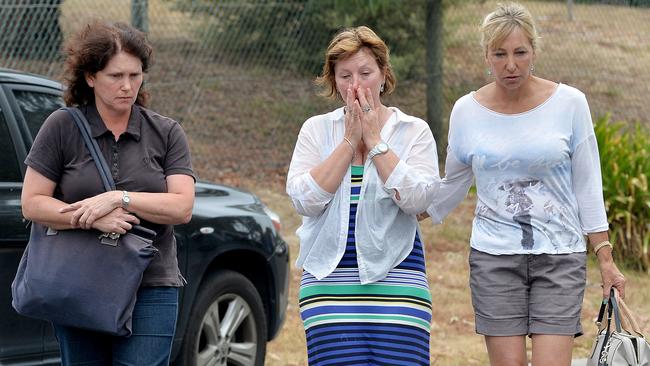
Andrew Rule
Don't miss out on the headlines from Andrew Rule. Followed categories will be added to My News.
“IF bravery is grace under pressure then Rosie Batty is one of the bravest women we’ll see …”
This reporter typed those words ten years ago this week, shaken at witnessing first hand the raw grief and courage of the woman who had seen her only child die in unspeakable circumstances.
Rosie Batty was facing the first day of the rest of her life, her world changed forever.
She spoke directly and with unnatural calm that day, each word forced from deep inside: an effort of will that riveted those who witnessed it. She had something to say and was determined to stay strong enough for long enough to say it.
This time, the lightning had struck her and her son, Luke. But it could have been anyone, anywhere, she said. Because family violence can happen to anyone.
“It doesn’t matter how nice your house is or how intelligent you are.”
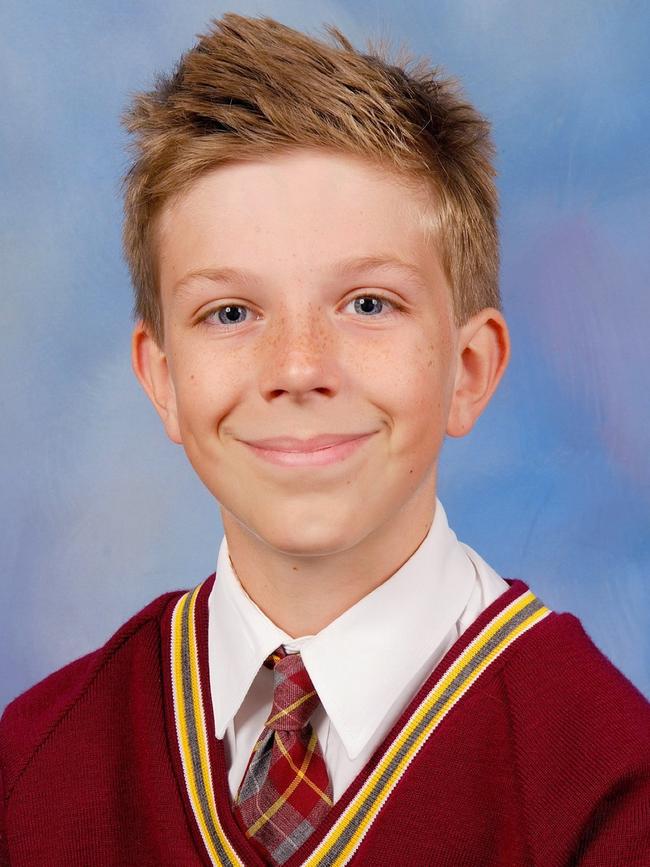
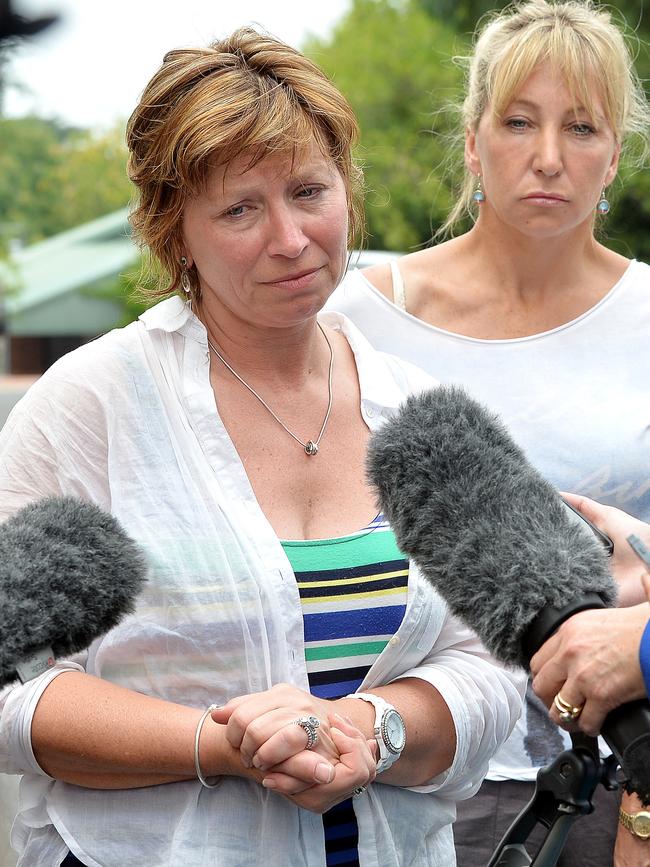
IT happened on February 12, 2014, a Wednesday afternoon, at the little sports ground at Tyabb, which is just far enough south east of Melbourne that locals think of it as the country.
Luke, 11, was living with his mother just up the hill from the cricket ground in a house she’d set up for his benefit near his school.
Rosie had been tempted to take the boy home to her parents in England to raise him. But, generously, she had wanted to do the right thing and keep him near his father, her troubled former partner Greg Anderson.
It must have seemed like a slice of heaven at Tyabb: a winding street among trees and landscaped gardens with pony paddocks and hen houses, far enough away from Anderson’s bleak bachelor lodgings in Chelsea Heights to feel safe but close enough for him to visit his son sometimes.
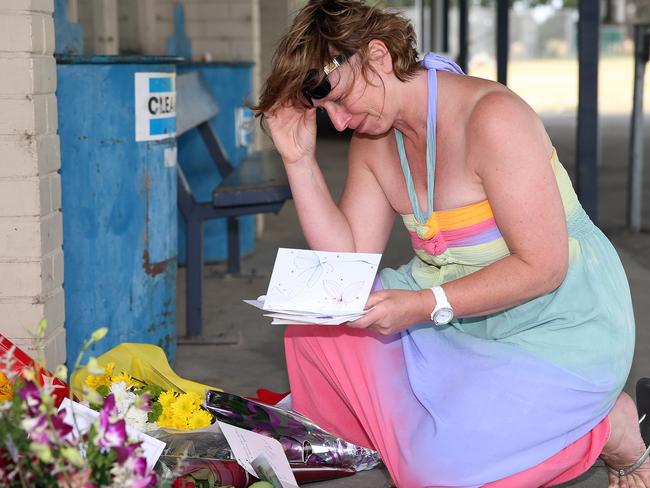
Down the hill around the corner was Luke’s school, the Flinders Christian Community College. He was so happy at the school that keeping him there was an extra reason for Rosie staying in Australia despite Anderson’s increasingly erratic and threatening behaviour.
Still, until late that afternoon, few suspected the depths of the darkness in Anderson’s heart. But the truth was there had been glimpses.
The previous summer, in the first week of January 2013, Anderson had sat on the floor of the Hastings Police Station, arms crossed, facing the wall.
“I only answer to Jesus,” he told the perplexed police. “I want to know why you think you’ve got a right to hold me at all.”
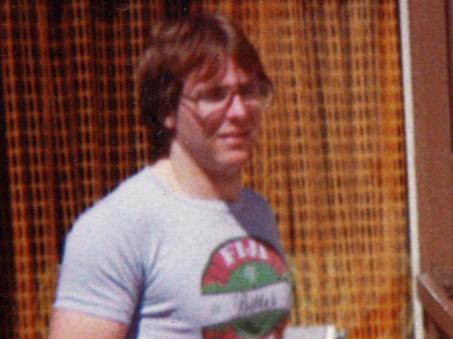
At that point, he had been arrested for threatening to kill Rosie and for breaching an intervention order not to approach her home without permission. He’d refused to answer questions that day and was later released on bail — a pattern of arrogance, bluff and cunning that would be repeated one way or another for the next 13 months as he weaved his way around a sketchy system.
Greg Anderson did not so much fall through the cracks as slip and slide from one easy gap to another, like a snake in a woodheap.
Some thought he was mad and some thought he was bad and everyone who knew him thought he was intelligent. Yes, he could be delusional — but he was also devious enough to fabricate a veneer of normal behaviour long enough for the evil angels of his nature to get what they wanted.
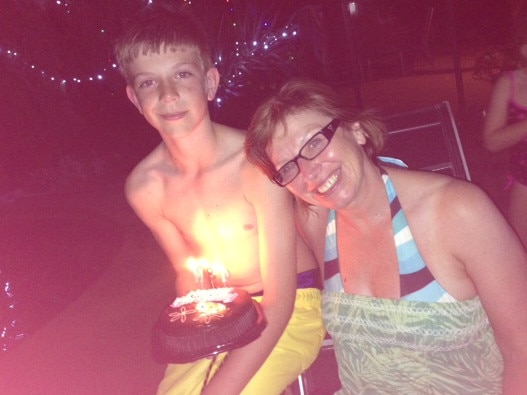
What he wanted by February 12, it seems, was the most terrible thing a parent could want: to destroy his own child to “punish” the other parent. Like Robert Farquarson, who drowned his three sons in a staged driving “accident” near Geelong in 2005. Like too many other men gripped by evil revenge fantasies.
But no one knew that until it was too late.
Rosie Batty first met Greg Anderson when they worked together at a recruitment company in the 1990s.
She was backpacking around Australia, a cheerful English girl looking for adventure, romance or friendship. Greg seemed the happy-go-lucky sort who could leave one job and pick up another.
But their relationship did not last long, largely because of Anderson’s increasingly strange and aggressive behaviour, notably an incident in which he assaulted a female friend of Rosie’s.
A brief reconciliation years later led to Rosie accidentally falling pregnant. By the time Luke was born in June 2002, the restless and nomadic Anderson was staying at a Russian Orthodox monastery in New South Wales.
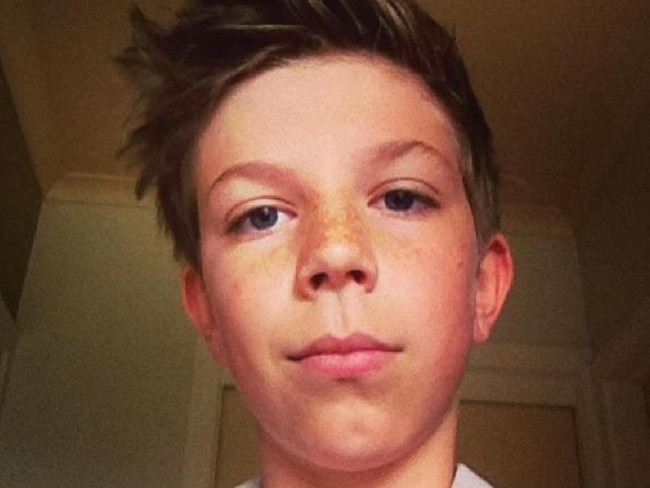
He was banned from the monastery for making abusive phone calls and returned to Rosie and her newborn shortly after. But any chance of saving the rekindled relationship was doomed by his deteriorating mental state, which led to unemployment and homelessness — feeding a festering, irrational anger that everyone underestimated until it was too late.
By the new year of 2014, Anderson was already facing assault charges and wasn’t supposed to come to Rosie’s house at Tyabb. But Rosie believed it was safe to let Luke see his father somewhere as public as cricket practice at the local oval. So did the authorities involved.
It all seemed to go so well. Luke had finished under-13s cricket training and asked if he could spend a little extra time with his dad, who’d been watching him.
Rosie was pleased to see him play with his father. How could she know what was really going on behind the mask Greg Anderson held up to a world he thought was persecuting him?
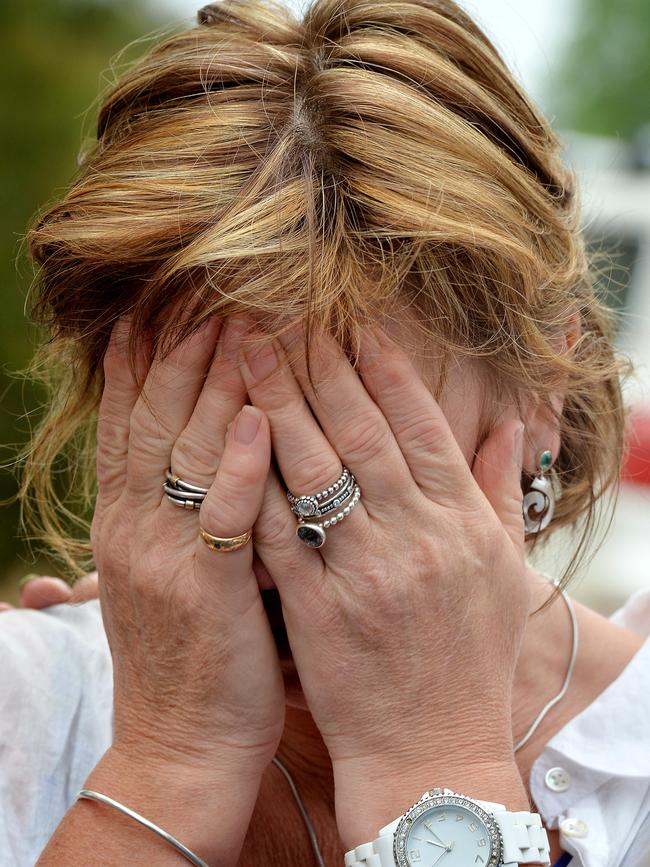
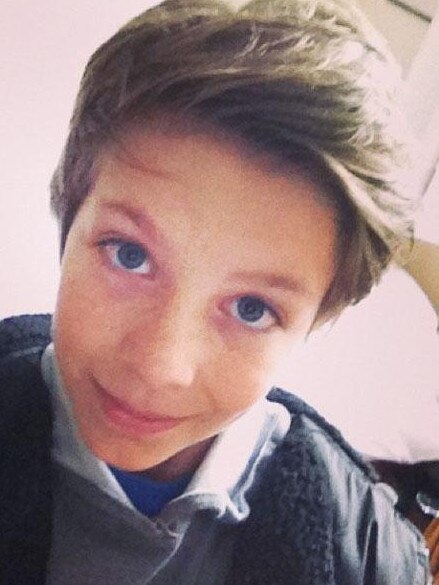
When the nightmare unfolded, Rosie wasn’t watching closely. Even when she saw blood on Luke she thought he must have been hit in the head with a cricket ball and ran for help, screaming for an ambulance.
It wasn’t until Anderson menaced ambulance officers with a knife that the terrible truth was clear. When the police came and he threatened them, too, they had no choice but to shoot. He died a few hours later, which was most likely part of his grotesque plan.
It wasn’t until an inquest hearing much later that everyone concerned built a more complete picture of the man who came to kill the thing he loved — and why.
It reflected poorly on a system so full of holes that someone like Greg Anderson could treat it with contempt.
For several months, Rosie Batty held to the belief that Greg Anderson had loved Luke as much as she had but was entirely delusional from his mental illness.
But time and growing evidence of the troubling behaviour of an arrogant and calculating man altered her view. She finally came to know that despite his loving Luke, Anderson had been fixated on punishing her.
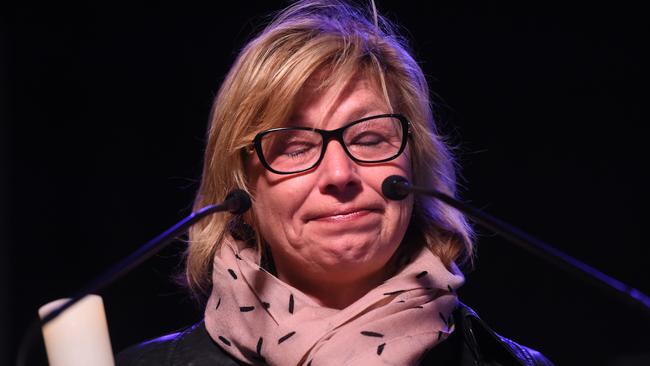
She told the inquest into her son’s death: “Can you imagine what that feels like, that someone against all odds wants to make you suffer for the rest of your life — to win? But let me tell you [that] by the end of this investigation, I hope you all do.
“This was a premeditated act, this was deliberate. But Greg was the only one who knew it.”
Until the inquest stitched together a picture of Anderson’s frightening descent through a fatally flawed system, no single person had grasped the full extent of the menace he posed.
This was a man who had produced a knife and made threats as he waved it. He had once showed the knife to Luke and commented it could be the thing “to end it all”. Another time, he menaced a junior football coach with it. Police officers who knew Anderson best did not trust him. Yet no-one stepped in to stop him.
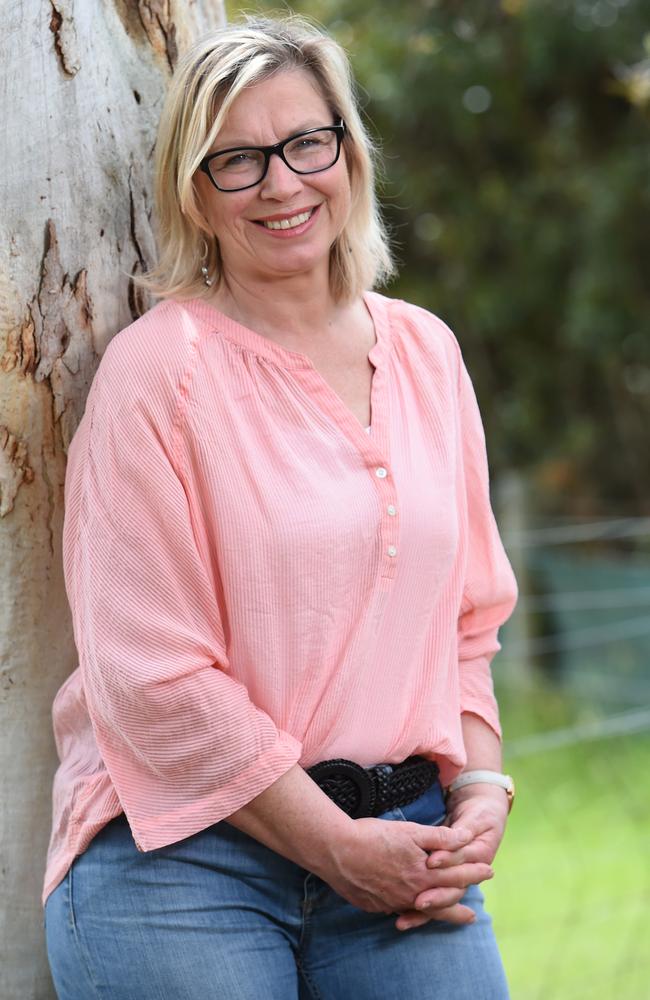
Most chilling of all, perhaps, it emerged that on the day of the murder, Anderson had cleared out his lodging room as if he knew he was never coming back.
Rosie Batty became wiser but not bitter. Her directness, honesty and courage touched everyone who met her. She found ways to say the unsayable in ways that tens of thousands of people understood.
She would become an Australian of the Year and many other things besides. She would be feted at every level and embraced by the great and the good, by politicians and policy makers and senior police. But she did not waver. Ever since that haunting day a decade ago when she found the words to face the end of the world she knew, she has been a fierce and fluent advocate for victims of violence.
In her unthinkable loss, Rosie Batty has found a way to help others. Proof that her son’s life means something.




